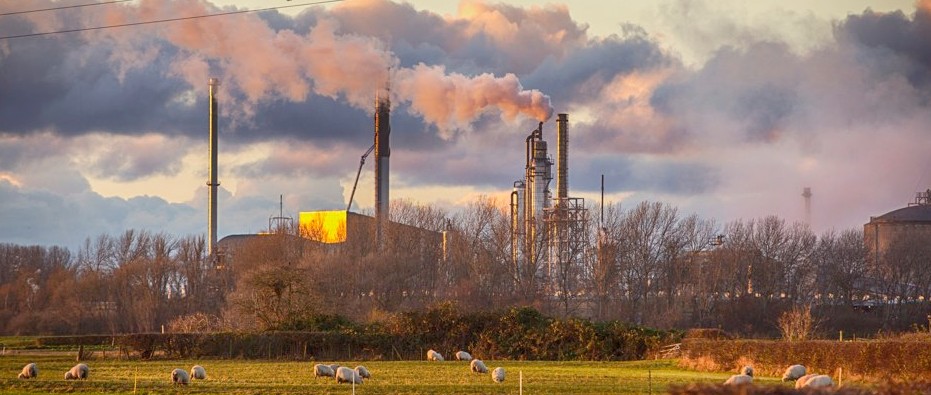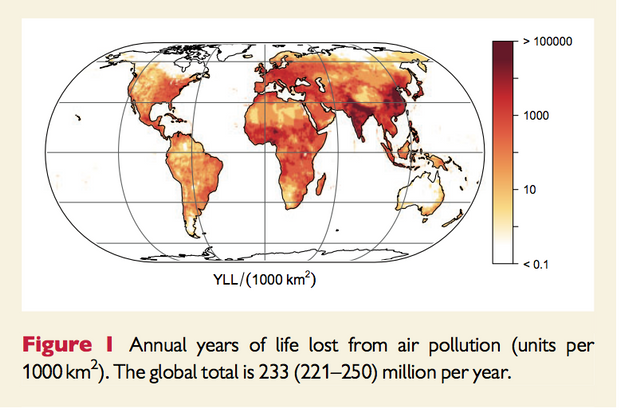
New study finds that globally, air pollution caused an extra 8.8 million premature deaths in 2015.
German study the first to assess the effects of air pollution as a factor of age, type of disease and countries/regions.
Globally, human-made air pollution accounts for two-thirds of premature deaths.
Paper makes the important distinction between avoidable, human-made pollution, and unavoidable pollution from natural sources, such as desert dust and wildfire emissions.
Air pollution kills more people than smoking cigarettes, a study at the University Medical Centre Mainz in Germany has found.
The researchers estimated that globally, air pollution caused an extra 8.8 million premature deaths in 2015, equating to an average shortening of life expectancy by nearly three years.
In comparison, 7.2 million deaths were caused by tobacco smoking, shortening life expectancy by an average of 2.2 years, while 1 million deaths were caused by HIV/AIDS (0.7 years).
Diseases carried by parasites or insects – such as malaria – were responsible for 600,000 deaths (0.6 years), and all forms of violence – including war – accounted for 530,000 deaths (0.3 years).

Professor Jos Leliveld, one of the co-leads on the research, explains, “air pollution causes damage to the blood vessels through increased oxidised stress, which then leads to increases in blood pressure, diabetes, stroke, heart attacks and heart failure.”
The study, published in Cardiovascular Research, is the first to assess the effects of air pollution as a factor of age, type of disease and countries/regions.
It found that air pollution is a crucial risk factor in cardiovascular diseases especially (heart disease and cerebrovascular disease combined) and that people over the age of 60 were most at risk.
The study also highlighted large differences between regions, with the highest loss of life expectancy from East Asia, where three of the four years of lost life expectancy could be prevented by the removal of human-made emissions.
In Europe, there is an average of 2.2 years of lost life expectancy, 1.7 of which could be prevented.
Professor Thomas Münzel of the University Medical Center of Mainz warns, “since the impact of air pollution on public health overall is much larger than expected, and is a worldwide phenomenon, we believe our results show there is an ‘air pollution pandemic’.”
The paper makes the important distinction between avoidable, human-made pollution, and unavoidable pollution from natural sources, such as desert dust and wildfire emissions.
Researchers attribute two-thirds of premature deaths to human-made air pollution, mainly from the use of fossil fuels, increasing to 80 per cent in high-income countries. They note, however, that there is a degree of uncertainty surrounding the estimates and that more research is needed.
Article Credit: sciencefocus
